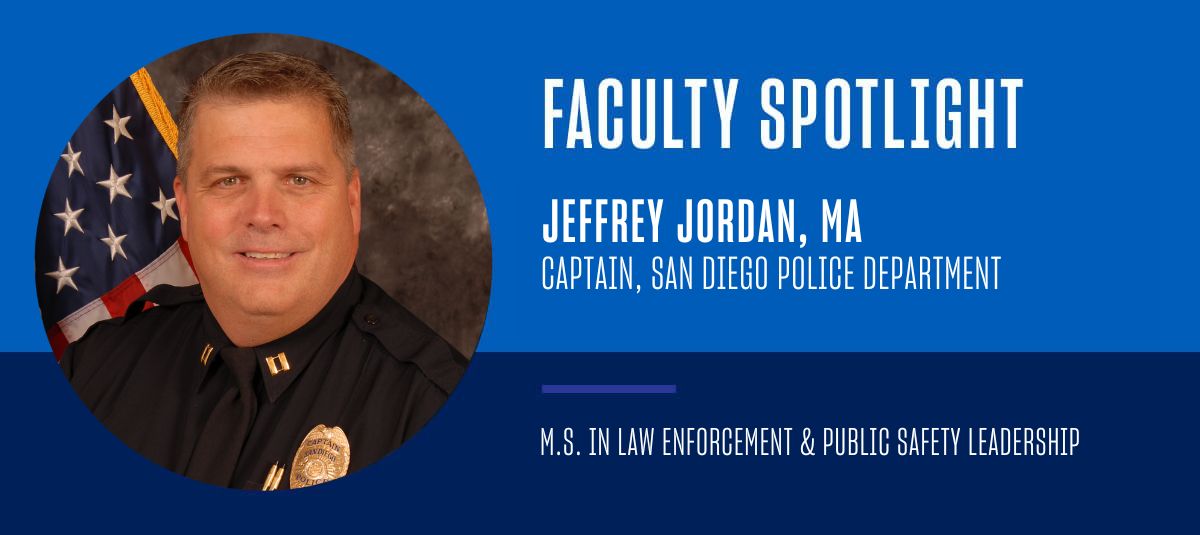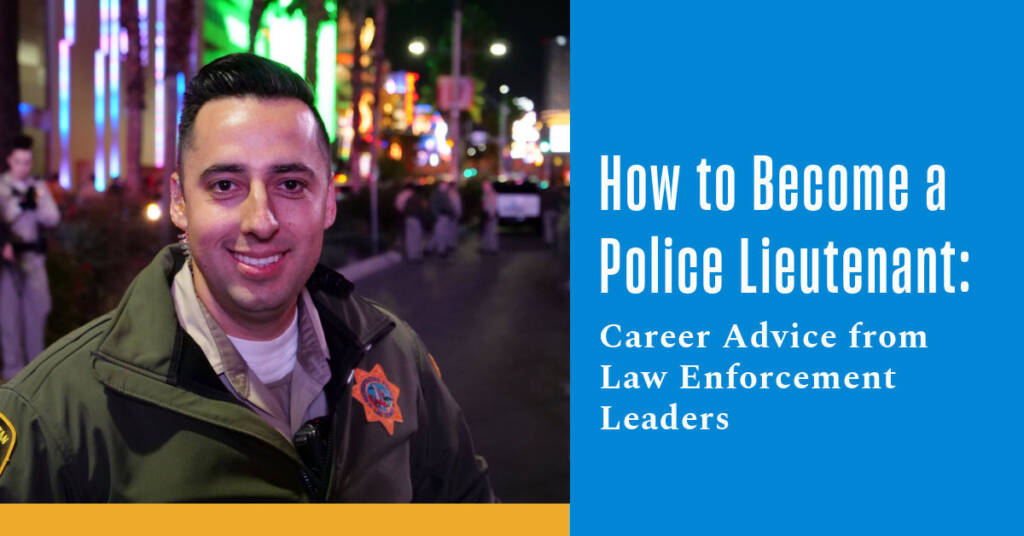Capt. Jeffrey Jordon, the First Legislative Affairs Leader for SDPD and a Faculty Member with the M.S. in Law Enforcement & Public Safety Leadership Program
Jeffrey Jordon — a San Diego Police Department Captain and instructor in the University of San Diego’s Law Enforcement and Public Safety Leadership (MS-LEPSL) master’s degree program — comes from a long line of law enforcement professionals. He jokes that it’s the family business, but truth be told, it was the stories passed down by his grandfather and other relatives about making a difference in their community that sparked his passion.
for the San Diego Police Department. This role, one of the first of its kind in the country, puts Capt. Jordan at the intersection of policy making and policing. He is charged with tackling the complex issues facing law enforcement today by conducting deep research and formulating the findings into evidence-based decisions and recommendations.
This unique assignment required someone with a law enforcement background who could objectively look at best practices, compare those to existing law enforcement functions and identify where changes could be made to meet the evolving needs of the community. There was no better person for the job than Capt. Jordon, and he is now leveraging that unique perspective as an instructor in the M.S. in Law Enforcement and Public Safety Leadership program at the University of San Diego.
[RELATED] How a Master’s Degree Can Help Take Your Career to the Next Level >>
How did you end up in your current role as Captain in charge of Special Projects and Legislative Affairs?
David Nisleit (a fellow USD-LEPSL instructor) was named Chief of Police in February 2018, and in that position he began to see that legislation, legislators and police reform was an evolving issue in law enforcement. He decided he wanted somebody to take on this role that was going to be able to tackle the issues, do deep research, and look at the current state of affairs to see where the department could change some of our practices to meet the growing demands placed on us by the community and legislators.
I think Chief Nisleit was really ahead of his time when he created this position. With the state of affairs that have existed over the last couple of years, the job is just getting even more challenging.
Research on policy and legislation is a huge part of your job. Can you describe how the San Diego Police Department utilizes that research, and how that research informs the work you do as a LEPSL faculty member?
There are a number of community groups within San Diego who propose potential legislation, ask questions of the police and make recommendations. A lot of the research involves analyzing whether we can change the way we do business. We explore it and then we report back about what our findings are. We may not be in total agreement with the proposal, but it’s a process. I think at the end of the day, it’s the research-fostered dialogue that helps us tell our own story and engage with community members to talk about what we’re doing and why.
Everything we’re doing here in San Diego is connected like a giant spider web across the United States, and other agencies and departments are dealing with the same problems we are. I am able to bring my professional experiences and how we approach problem solving at SDPD, and share that with the LEPSL students. I find one of the great parts about being a faculty member is the engagement that we have with our students — I’m also learning as much from them and the unique way that they’re doing business as they are from me.
Based on your experience with advancing new technology in law enforcement, what do you think will be the “next big thing” in terms of technology, privacy rights and legislation?
Technology is evolving and changing rapidly, and much of our oversight and the parameters that guide law enforcement are being determined by the courts. But I do think at some point legislators are not going to allow court decisions to solely determine these regulations and that the legislation will begin to drive the parameters in which law enforcement agencies can operate with their technology. If your department doesn’t have an understanding of how you’re using technology, what your use policies are and what the impact of this technology is on the community, that’s a good place to start. Because that level of review and that level of oversight is coming soon.
It’s a dynamic time for law enforcement, and you have a front-row seat in your current role. Can you talk about what you hope to achieve through your work?
We’re currently seeing one of those incredible moments in history where there is demand for police reform. In many cases it’s looking at community expectations, figuring out how we can implement those changes, and how we can bring folks together to face common goals. I think we have a lot of shared values between police departments and communities — everybody wants strong, thriving communities where their children can grow up in a safe environment.
A lot of what we’re doing in legislative affairs is looking at the data and how we (police and the community) interact to answer the big questions. How can we get better? How can we build bridges? How can we answer questions from the community? Can we explain what we do and why? And can we enhance understanding to really develop those thriving communities built on mutual trust?
How do you use your career experiences, both in the legislative role and as a police officer, to inform your teaching in the LEPSL program?
I think I am uniquely positioned to teach about evolving issues, but I’m also at the forefront of being able to predict what is coming next and share what I have learned. I’m very honest in that regard and always share what worked really well and what we could have improved upon so students can try to replicate that success and learn from our (SDPD) failures. I am able to share with students those firsthand experiences about our successes and our failures in an honest, open environment where we can all learn from each other.
I believe that law enforcement can implement positive change and make a difference in communities. And I think that that change can start with the LEPSL program.
[RELATED] Move Up the Ranks and Make a Difference in Your Community >>




